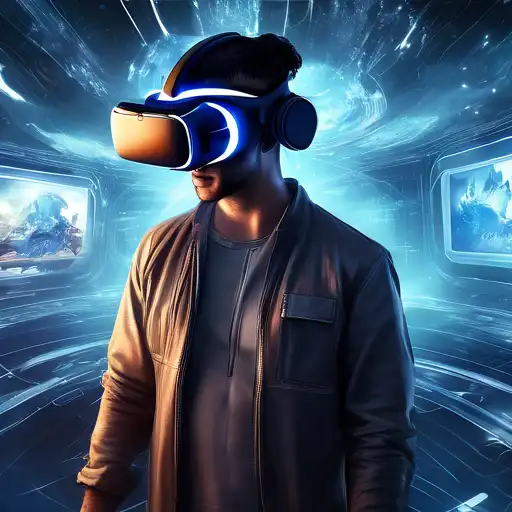Introduction to Virtual Reality
Virtual Reality (VR) has transformed the way we interact with digital content, offering an immersive experience that goes beyond traditional screen-based interactions. This technology has found applications in various sectors, including gaming, education, and healthcare, providing users with a new dimension of experience.
The Evolution of Virtual Reality
The journey of VR from a futuristic concept to a mainstream technology is nothing short of remarkable. Early attempts at creating immersive environments were limited by technology, but today's VR systems offer high-resolution displays, precise motion tracking, and realistic sound, making the virtual world almost indistinguishable from the real one.
Applications of Virtual Reality
VR's versatility allows it to be used in numerous fields. In gaming, it provides players with an unparalleled level of immersion. Educational institutions use VR to simulate real-world scenarios for students, enhancing learning outcomes. Healthcare professionals employ VR for surgical training and patient therapy, showcasing the technology's potential to save lives.
Benefits of Virtual Reality
- Enhanced Learning: VR can simulate complex environments for educational purposes, making learning more interactive and effective.
- Improved Training: From pilots to surgeons, VR offers a safe and controlled environment for practicing high-risk tasks.
- Entertainment: VR takes gaming and movies to the next level, offering experiences that are truly immersive.
Challenges and Future Directions
Despite its advancements, VR faces challenges such as high costs, the need for powerful hardware, and potential health concerns like motion sickness. However, ongoing research and development promise to address these issues, paving the way for more accessible and versatile VR solutions.
Conclusion
Virtual Reality is more than just a technological innovation; it's a gateway to experiences that were once deemed impossible. As VR continues to evolve, it will undoubtedly unlock new possibilities, reshaping how we learn, work, and play. The future of VR is not just about seeing a new world but living in it.
